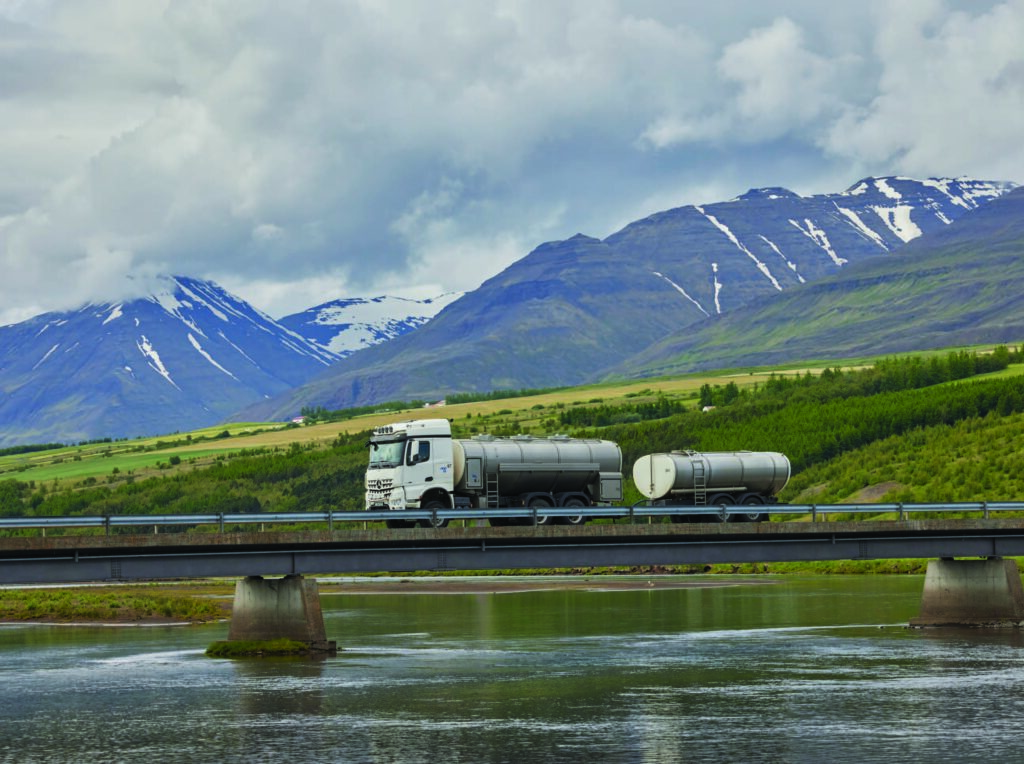Share this page

Alignment with SDGs
AUTHOR
Margrét Gísladóttir MS Dairy, Reykjavik • Iceland
Abstract
ENERGY PRODUCTION IN ICELAND
Century, Iceland has made extraordinary progress in the use of her geothermal and hydroelectric renewable energy resources. Today, the country is at the forefront in the field of renewable energy use. 99,99% of the country‘s electricity comes from renewable energy sources, with hydropower accounting for three quarters and geothermal a quarter. As a result, Iceland’s electricity generation is one of the most environmentally friendly in the world. Iceland, no doubt due to its volcanic nature, is, moreover, a global leader in the technology of harnessing geothermal energy, of which the largest part is not used for electricity generation but for direct heating of houses. Having ample, renewable, stable and inexpensive energy resources offers a great advantage to all Icelandic industries. Iceland’s dairy farming sector has been in the forefront of utilizing this advantage.
ACCELERATION IN THE TECHNOLOGICAL DEVELOPMENT OF
FARMING
The supply of affordable renewable energy and stronger electrical distribution systems has accelerated the adoption of technological improvements in both dairy farms and dairy processing. In 2021, 47% of cowsheds in Iceland had robotic milkers, and 65,2% of the total milk production came from farms with robotic milkers. Every year, more farmers install automatic feeding systems. These changes have led to better feed utilization, healthier cows and higher yield. Investments in improved feeding systems and manure robots have also reduced the use of fossil fuels and helped the production process to lower its carbon emissions. Government grants for investments in carbon reduction technology have provided a further impetus for these advances.
PROCESSING DAIRY PRODUCTS WITH ENTIRELY ENVIRONMENTALLY
FRIENDLY ENERGY
MS Dairy, Iceland‘s largest dairy production company, places heavy emphasis on sustainable production methods. This emphasis appears both in changes in production equipment and choice of energy sources. In 2020, by replacing the company‘s last oil powered steam boiler for milk pasteurization with an electric one, MS Dairy became, to the best of our knowledge, the only dairy company in the world that uses exclusively environmentally friendly, renewable energy in its production of dairy products. Before that, in 2015, the company replaced its previous oil powered milk powder production equipment with electrically powered equipment. This action alone reduced carbon emissions of milk powder production by 95%, while, at the same time, the production volume has increased by 43%.
GETTING MORE FROM THE SAME
Increased sustainability can be viewed in the same way as increased efficiency; getting more from the same. One way to do this is to obtain a higher value from the same volume of raw milk. In 2017, a new factory processing a high-quality protein from whey, an unavoidable byproduct of cheese production, commenced.
operation. This factory, which transforms an essentially worthless byproduct that was previously discarded, not only produces more value from the same inputs, it also represents a significant step toward a more environmentally friendly dairy processing. This coming winter, when the production of ethanol from the lactose content of whey will begin, there will be no waste products from cheese production whatsoever.
ICELAND TO BE FOSSIL FUEL FREE IN 2040
The Icelandic government has adopted the goal that Iceland will use no fossil fuels by the year 2040. As transportation is a big part of the dairy production process, MS Dairy closely monitors the latest technical advances that contribute to better fuel utilization and lower carbon emissions of transport vehicles. Thus, in 2021, the first methane-fueled transport truck was put into service, and earlier this year, we replaced the car-pool of the sales team with electric and plug-in hybrids. Over just one year, between 2020 and 2021, the fossil fuel consumption of MS Dairy has decreased by 9.6%. Currently, the company is looking into the possibility of electric transport trucks to reduce carbon emissions even further. Iceland is a sparsely populated country, and the distances are long. To achieve the goal of energy transition before 2040, the country‘s infrastructure must be developed at a faster pace and in line with the needs for transportation. There is a great deal to gain. With the electrification of the car fleet, Iceland could be entirely self-sufficient in green energy for transportation as well as for electricity generation and heating within the next two decades.
Having ample, renewable, stable and inexpensive energy resources offers a great advantage to all Icelandic industries. Iceland’s dairy farming sector has been in the forefront of utilizing this advantage.
Margrét Gísladóttir Tweet






